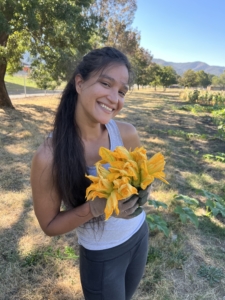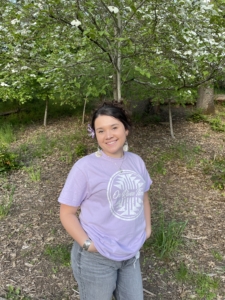Four SOU alumni honored for service
A retired professor and Cherokee Nation member, a current small college president, a U.S. Air Force colonel who commands Oregon’s Air National Guard fighter wing and an Alaskan who has gone from wrestler to civil rights leader all will be honored on Thursday, Nov. 3, when Southern Oregon University recognizes this year’s alumni award winners.
This year’s four award recipients were chosen by the SOU Alumni Association Board of Directors: Helen Redbird-Smith, Ph.D., for the Outstanding Alumni Award; Cynthia Pemberton, Ed.D., for the Alumni Excellence in Education Award; Col. Todd Hofford for the Stan Smith Alumni Service Award; and Master Sgt. Carl Green for the Outstanding Young Alumni Award. The awards ceremony will be at 11:30 a.m. in the Stevenson Union’s Rogue River Room.
Redbird-Smith
Helen Redbird-Smith grew up in Oklahoma, a member of the Cherokee Nation, but moved with her family to southern Oregon shortly after World War II when her father wanted her to attend “Elmo’s school” – a reference to Southern Oregon College under then-President Elmo Stevenson. She graduated in 1951 with a bachelor’s degree in education, then went on to earn master’s and doctoral degrees in anthropology from the University of Colorado. Redbird-Smith returned to Oregon to serve for 30 years on the faculty at Western Oregon University and received an appointment in 1980 from President Jimmy Carter to provide advice and counsel on the issues of Native American students. She still finds joy in learning – taking classes in film, science, Japanese and philosophy – and in honor of her SOU connections has donated to the Hannon Library many of her research papers, monographs, ephemera and documents related to Native American Tribes.
Pemberton
Cynthia Pemberton grew up in Medford and went on to Willamette University, competing as a student-athlete on the swim team and earning bachelor’s degrees in biology and psychology. She worked in Hawaii for the Dolphin Language Institute, then returned to the Rogue Valley as a swim coach for the Southern Oregon Swim Association in Ashland, and while coaching full-time in 1983, completed her master’s degree in interdisciplinary studies at SOU, with a focus on physical education, sports psychology and nutrition. She held coaching and teaching positions at the University of Nevada, Reno, and at Linfield College in McMinnville, before earning her doctorate in educational leadership at Portland State University in 1996. She has held administrative positions at Idaho State University in Pocatello, Dickinson Staten University in North Dakota and Colorado Mesa University in Grand Junction, and has served as president of Lewis-Clark State College in Lewiston, Idaho, since 2018.
Hofford
Todd Hofford grew up in Ashland and worked while in high school at the historic Mark Antony Hotel (now the Ashland Springs Hotel). He was placed on academic probation during his freshman year at SOU, then enlisted in the Oregon Air National Guard to help pay for school and bore down academically while commuting between Ashland and Kingsley Field in Klamath Falls, eventually graduating magna cum laude in 1996 with a bachelor’s degree in business administration – and a year later, with a second bachelor’s degree in communication. He earned a spot in 1998 at the U.S. Air Force Officer Training School at Maxwell Air Force Base in Alabama, where he was commissioned as a second lieutenant before entering a two-year pilot program at Vance Air Force Base in Oklahoma. He returned to Oregon – first to Kingsley Field and then to the Portland Airbase as a fighter pilot in the 142nd Fighter Wing. He now serves as commander of the 142nd Wing, overseeing 1,400 service personnel and $2.2 billion worth of aircraft and equipment.
Green
Carl Green, Jr., grew up on Kodiak Island, Alaska, and was the first in his family to graduate high school. He moved to Washington to wrestle in junior college, but returned to his home state and joined the Alaska Army National Guard to help pay for his education. He moved to Ashland to attend SOU and wrestle, transferring to the Oregon Army National Guard. An injury ended his wrestling career, but he concentrated on academics, earning bachelor’s degrees in 2009 in psychology and human communication, with certificates in human resources, mediation and conflict resolution, and nonprofit management. He re-enlisted in the military, this time in the Oregon Air National Guard, then earned a master’s degree in public administration at the University of Oregon. Green has held operations analyst positions at the Bonneville Power Administration and the TriMet public transportation system in Portland, then as an equity officer at TriMet and later at the Regional Transportation District in Denver. He was promoted early this year to interim director of the Colorado agency’s Civil Rights Division.







 The NAS program will use the grant from Banyan to hire SOU alumna T Tschantre, who is of Tewa descent, to support participation in growth of Dragonfly’s Garden and to tend the plot with student intern Alanis Baldy, a citizen of the Hoopa Valley Tribe.
The NAS program will use the grant from Banyan to hire SOU alumna T Tschantre, who is of Tewa descent, to support participation in growth of Dragonfly’s Garden and to tend the plot with student intern Alanis Baldy, a citizen of the Hoopa Valley Tribe. Baldy and other NAS students were inspired by the success of Rose’s three sisters garden, and mobilized to use the technique on a garden plot – which would become known as Dragonfly’s Garden – in the SOU Community Garden. The community garden is a student-run organic cooperative at the corner of South Mountain Avenue and Henry Street.
Baldy and other NAS students were inspired by the success of Rose’s three sisters garden, and mobilized to use the technique on a garden plot – which would become known as Dragonfly’s Garden – in the SOU Community Garden. The community garden is a student-run organic cooperative at the corner of South Mountain Avenue and Henry Street.
